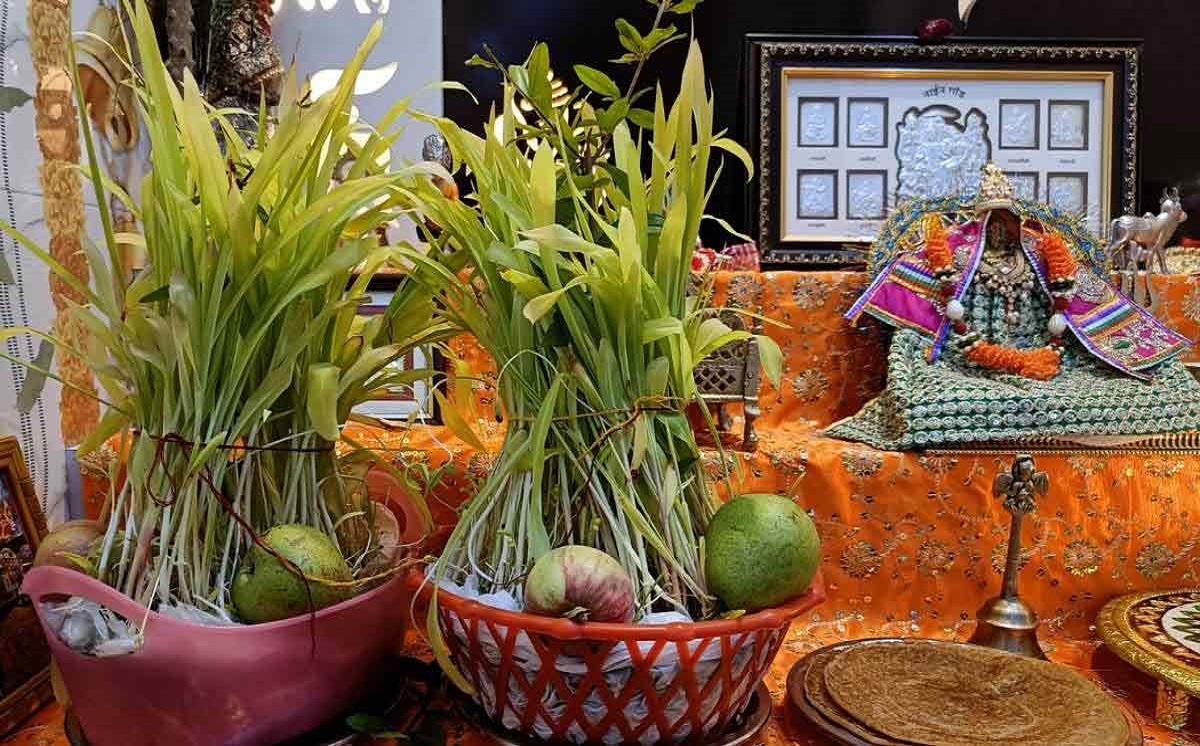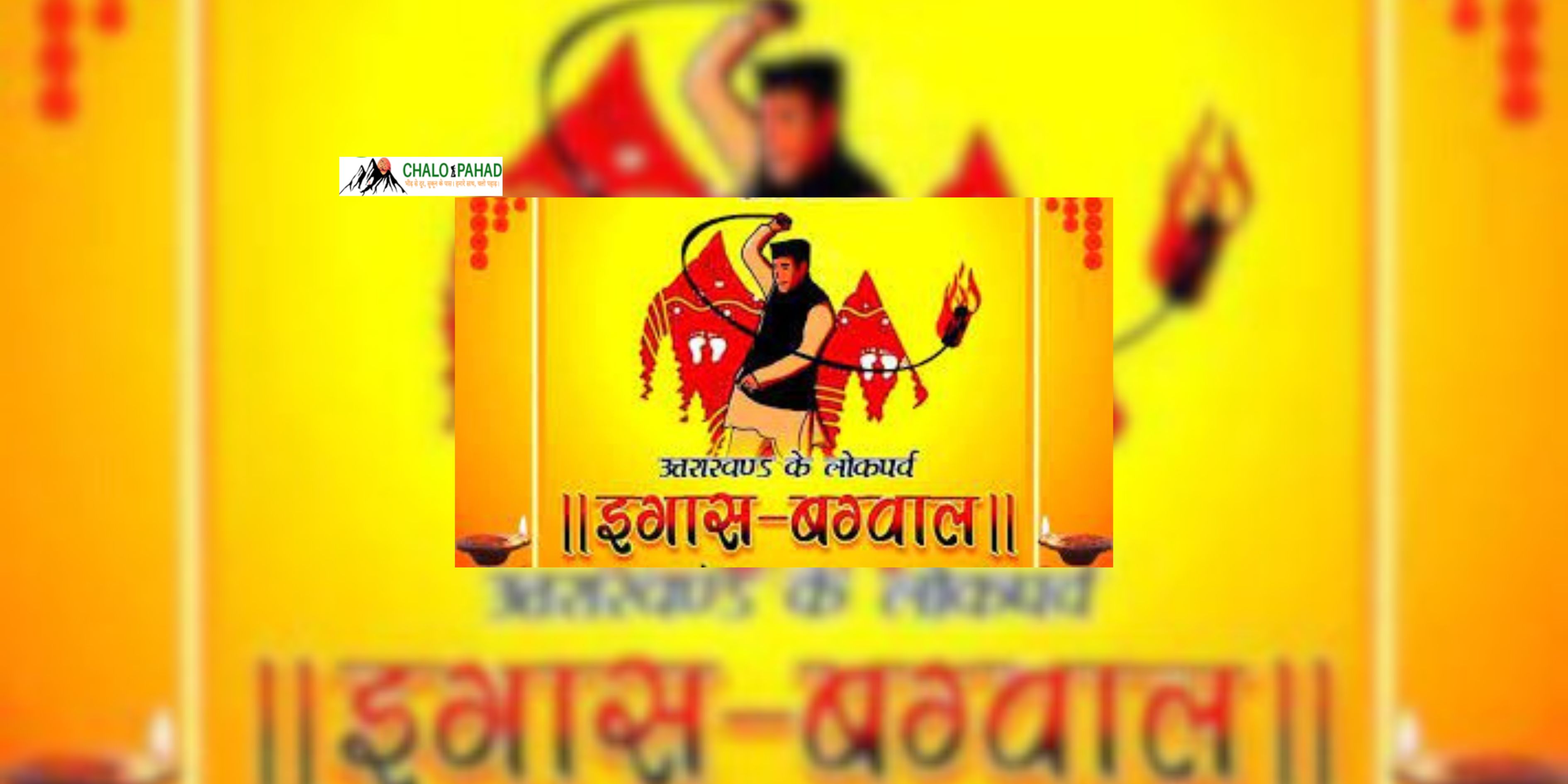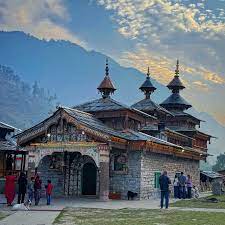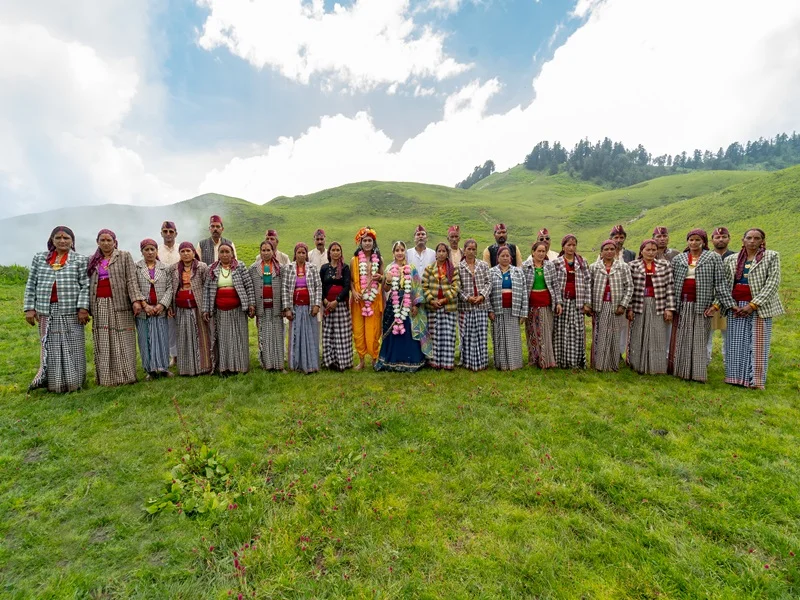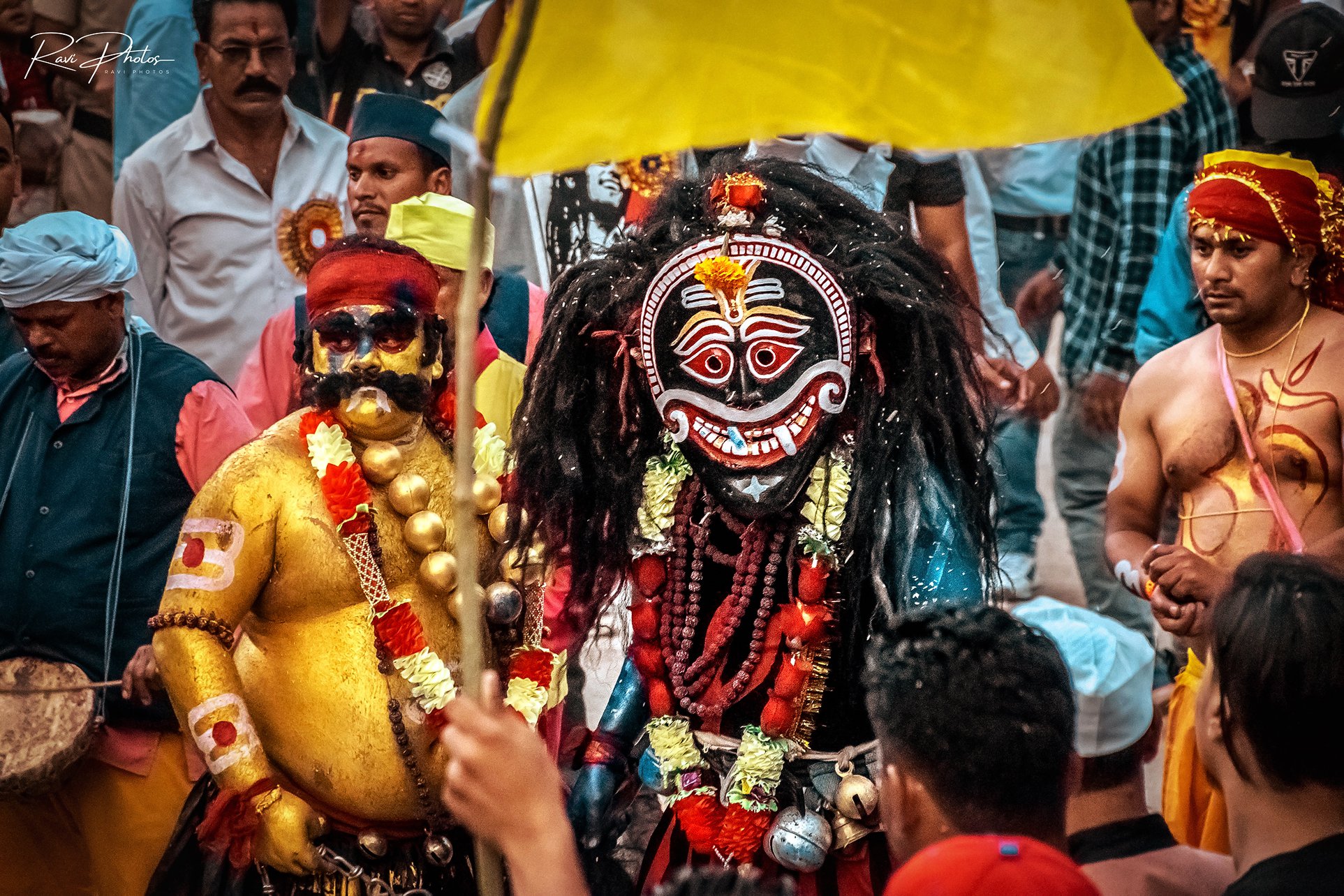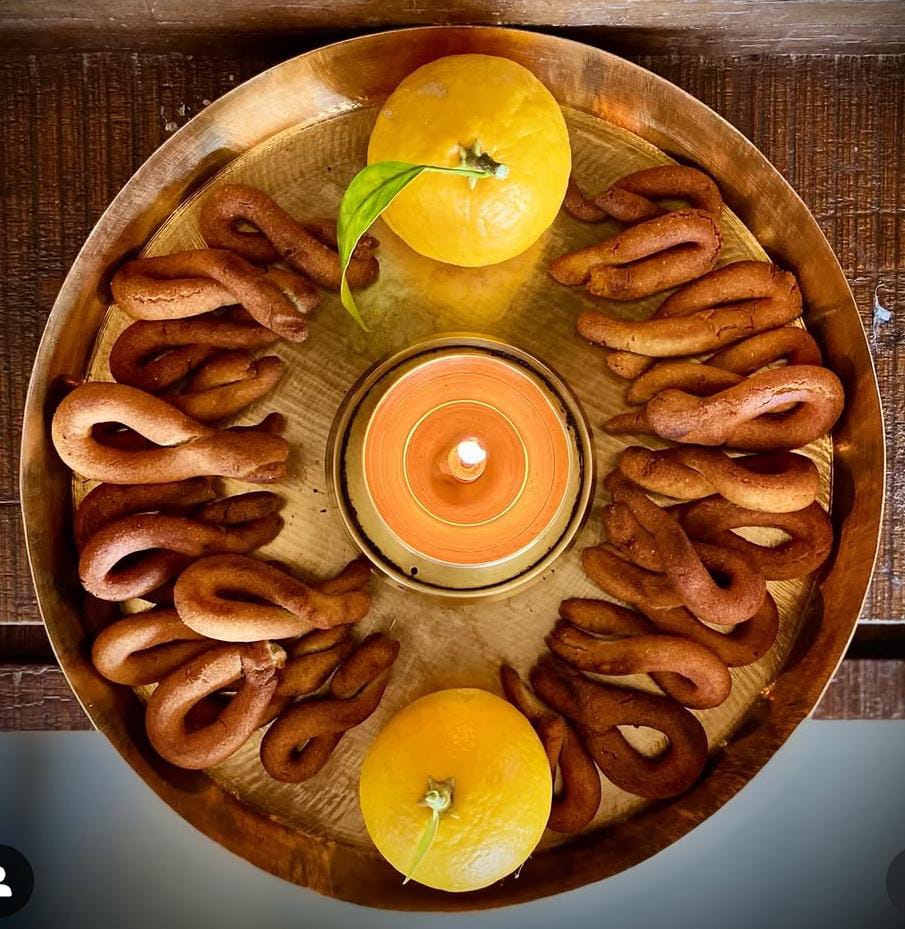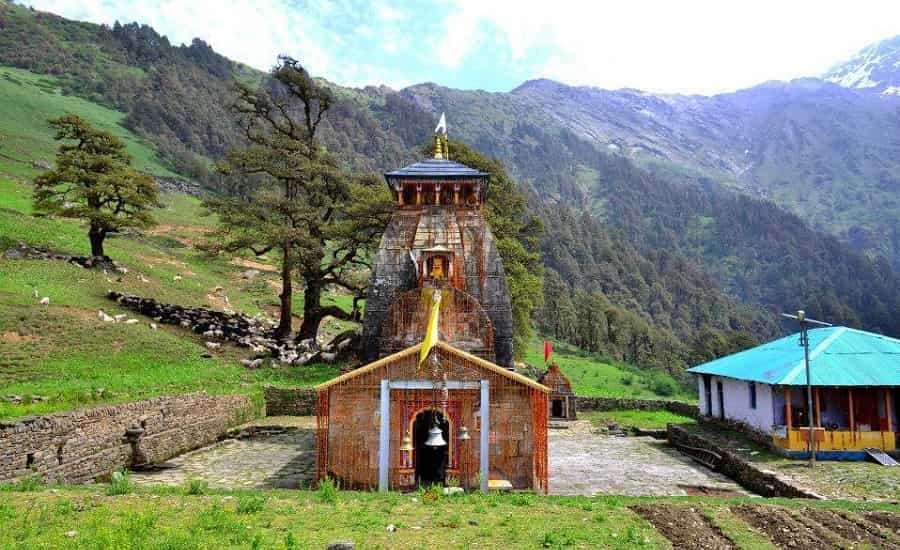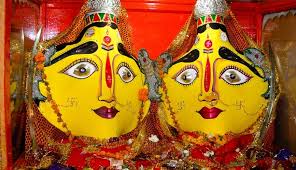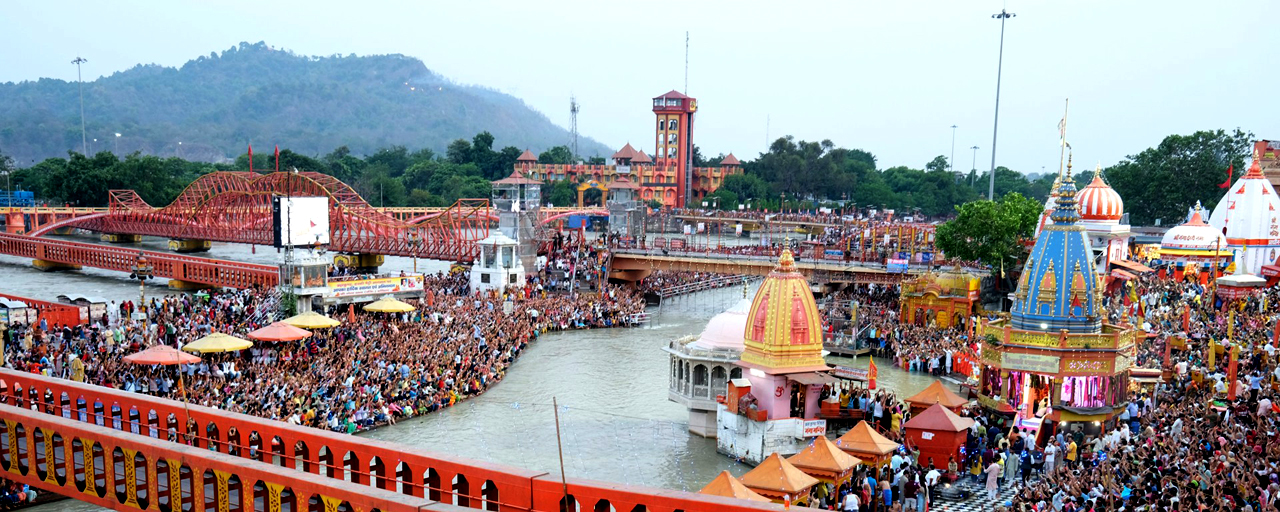Introduction
In the hill districts of उत्तराखंड from Kumaon to Garhwal there’s a competition that doesn’t revolve around gods or temples but around humans. It’s called Bhitauli (भितौली), a quiet birthday party that unfolds every year in the month of Chaitra (चैत्र), whilst spring stirs and fields start to green.
The word Bhitauli comes from भेंट meaning meeting or gift. At its heart, this is a festival of siblings, of brothers walking long paths to visit their married sisters, of gifts exchanged, and of ties renewed.
A Festival of Siblings
Unlike grand melas or temple rituals, Bhitauli is deeply personal. On this day, brothers visit the homes of their married sisters, carrying gifts wrapped in cloth clothes, fruits, sweets, or small handmade items. In return, sisters welcome them with warmth, food, and affection.
For newly married women, the first Bhitauli sometimes comes in Baisakh (बैसाख), the month after Chaitra. From then on, every Chaitra brings the same expectation and joy.
It is not just about presents it’s about presence. In the hills, where married daughters may not visit their parental homes often due to distance or household duties, Bhitauli becomes a lifeline of connection.
Why It Matters
For many women in Uttarakhand’s villages, trips to their मायका (maternal home) are rare. Roads are long, families are busy, and life moves with the rhythm of work and seasons. Bhitauli is a pause in that distance.
It doesn’t call for rituals in temples or large gatherings. It asks only that a brother walk the path, knock on the door, and show his sister she is remembered.
That small gesture carries weight. It affirms bonds that geography and time might otherwise thin.
The Rhythm of the Day
Bhitauli has a pace of its own, gentle but full of feeling:
- Before dawn: Sisters’ homes are cleaned, courtyards swept, lamps polished. Rice or wheat is soaked for sweets.
- Morning arrivals: Brothers come walking through pine forests or terraced fields, carrying bundles of gifts. Their clothes smell of dust and mountain air.
- Greeting at the gate: Sisters meet them with smiles, sometimes tears. Elders bless, children watch with curiosity.
- Unwrapping gifts: A new shawl, a box of jaggery sweets, perhaps some dry fruits. Simple, thoughtful, wrapped with care.
- The meal together: Kitchens come alive with the making of खीर (kheer), पुड़ी (puri), पुआ, पकौड़ी. Stories flow as much as the food.
- Evening songs: Folk verses are sung in courtyards, often lines of longing and memory. Women sing of their मायका, their mother’s home, and the ache of distance.
One such folk line goes:
“न बासा घुघुती चैत्र की, याद ऐ जांछी मिकें मैत की”
No home is like the one in Chaitra; it reminds me of my mother’s house.
Tales That Shape the Festival
Every festival is carried by stories. Bhitauli too has its share of folk tales.
One old story tells of a brother named Kalmu. After years of separation, his mother sent him with gifts for his sister, Uma. He reached her house late at night and, not wanting to disturb her, quietly placed the bundle at the doorstep before leaving. In the morning, when Uma found the gifts, she wept, whispering, “भाई आकर भी चला गया, मैं देख न पाई” (my brother came and went, and I could not see him).
From that tale of longing, people say, Bhitauli was born to ensure that sisters never wait unseen, that they are always remembered.
The Emotions Behind the Tradition
- Bhitauli is less about ritual and more about feeling.
- The anticipation of a sister, waiting for her brother’s arrival.
- The journey of a brother, walking paths with gifts tied in cloth.
- The moment of reunion, small but deep, where everyday distance dissolves.
- The parting, as the brother leaves again, and the sister watches until he disappears down the slope.
It is these quiet emotions that give Bhitauli its strength.
Bhitauli and Other Festivals
In Kumaon, Bhitauli often sits close to Harela (हरेला), the festival of sowing in Chaitra. Harela looks to fields and greenery; Bhitauli looks to family and relationships. Together, they tie life in the hills to both land and love.
Then and Now
Traditions shift with time, and Bhitauli has adapted to them.
- In villages, the old way continues brothers walking, gifts wrapped in cloth, family meals shared.
- In towns and cities, where travel may not be possible, brothers send money orders, parcels, or now digital transfers. Sometimes video calls stand in place of doorsteps.
- Yet the essence remains the act of remembering, of giving, of bridging the gap.
Even as forms change, the meaning stays steady.
Where You Feel It Most
Bhitauli is not found in big fairs or crowded temples. You feel it in smaller, quieter places:
- In a Kumaoni home with carved wooden windows.
- In smoke rising from a kitchen where khichdi bubbles.
- In the shawl, a sister drapes over her shoulders with care.
- In an old woman’s tears as she blesses her son’s arrival.
- In the silence after the brother leaves, when the sister stands watching the path, holding the memory close.
Why It Still Lives
Bhitauli endures because relationships endure.
It doesn’t demand wealth or spectacle. It asks only for presence and remembrance. When a brother walks through his sister’s door with a gift, when a family eats together, when songs of मायका fill the evening air, something timeless is affirmed that ties of blood and affection matter as much as, if not more than, rituals of gods.
In an age of screens and distance, Bhitauli whispers gently: “तुम याद हो” (you are remembered).
Conclusion
Bhitauli (भितौली) is certainly one of Uttarakhand’s quietest but most touching traditions. Celebrated every Chaitra, it reminds us that festivals don’t always need grandeur to be meaningful. Sometimes, they stay in small courtyards, in meals cooked with love, in a package deal of items, within the footsteps of a brother, and in the waiting eyes of a sister.
It is not about crowds, money, or temples. It is about the simplest of human needs to belong, to be remembered, and to be loved.

